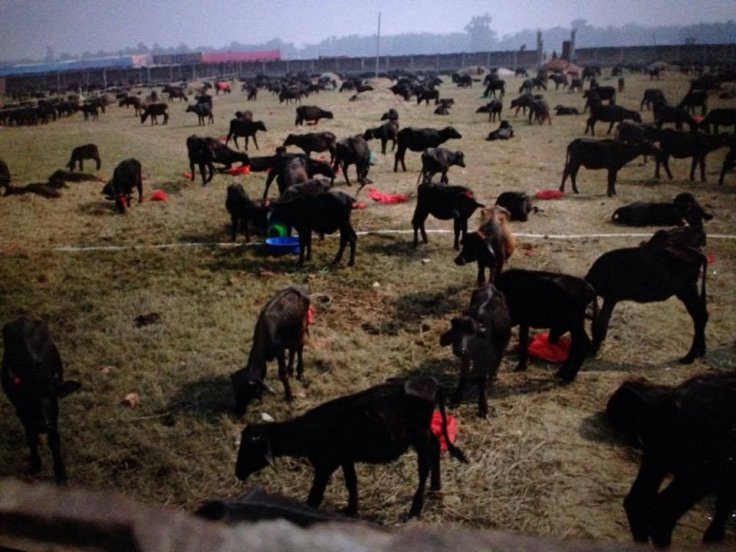Despite talks for a ban on the festival that involves hundreds of thousands of animals being slaughtered, the Gadhimai festival has kick-started in southern Nepalese town of Bariyarpur, close to Indo-Nepalese border.
Festival kicked off in Nepal

The two-day Hindu festival of Gadhimai is held every five years, which sees thousands of animals being slaughtered, in order to appease Goddess Gadhimai -- the goddess of power. The festival is held at Gadhimai Temple of Bariyarpur, in Bara district, close to Indo-Nepal border. The festival is chiefly observed by Madheshis, who are people of Indian ancestry, residing in Nepal's southern Terai region. Thousands of Indians also travel to neighbouring Nepal to attend the ritual.
Despite the immense outcry against the animal cruelty involved, the festival is being observed on 3-4 December. In 2009, more than 500,000 animals, ranging from buffaloes, goat and swine to rats, pigeon and chicken were slaughtered. Five years later, in 2014, more than 250,000 animals were decapitated.
Steps taken to discourage the festival
Many were hopeful after a 2015 announcement of temple authorities to ban the festival. In a statement, the Chairman of the Gadhimai Temple Trust, which organizes the festival said, 'The time has come to replace killing and violence with peaceful worship and celebration.'
Next year, the Supreme Court of Nepal ordered the government to discourage bloodshed involved in the festival. During this time, the Supreme Court of India ordered the Government of India to prevent illegal transportation of animals from India to Nepal.
Despite efforts, the festival is being held, this year as well. "The sacrifices have begun today... We had tried not to support it but people have faith in the tradition and have come here with their offerings," Birendra Prasad Yadav from the festival organising committee told AFP news agency. Animal parts after the slaughter are sold in the markets of India and Nepal.
250-year-old festival
The tradition dates back to a priest who was told about 250 years ago in a dream that spilt blood would encourage Gadhimai, the Hindu goddess of power, to free him from prison. The festival is observed every five years, since then.









